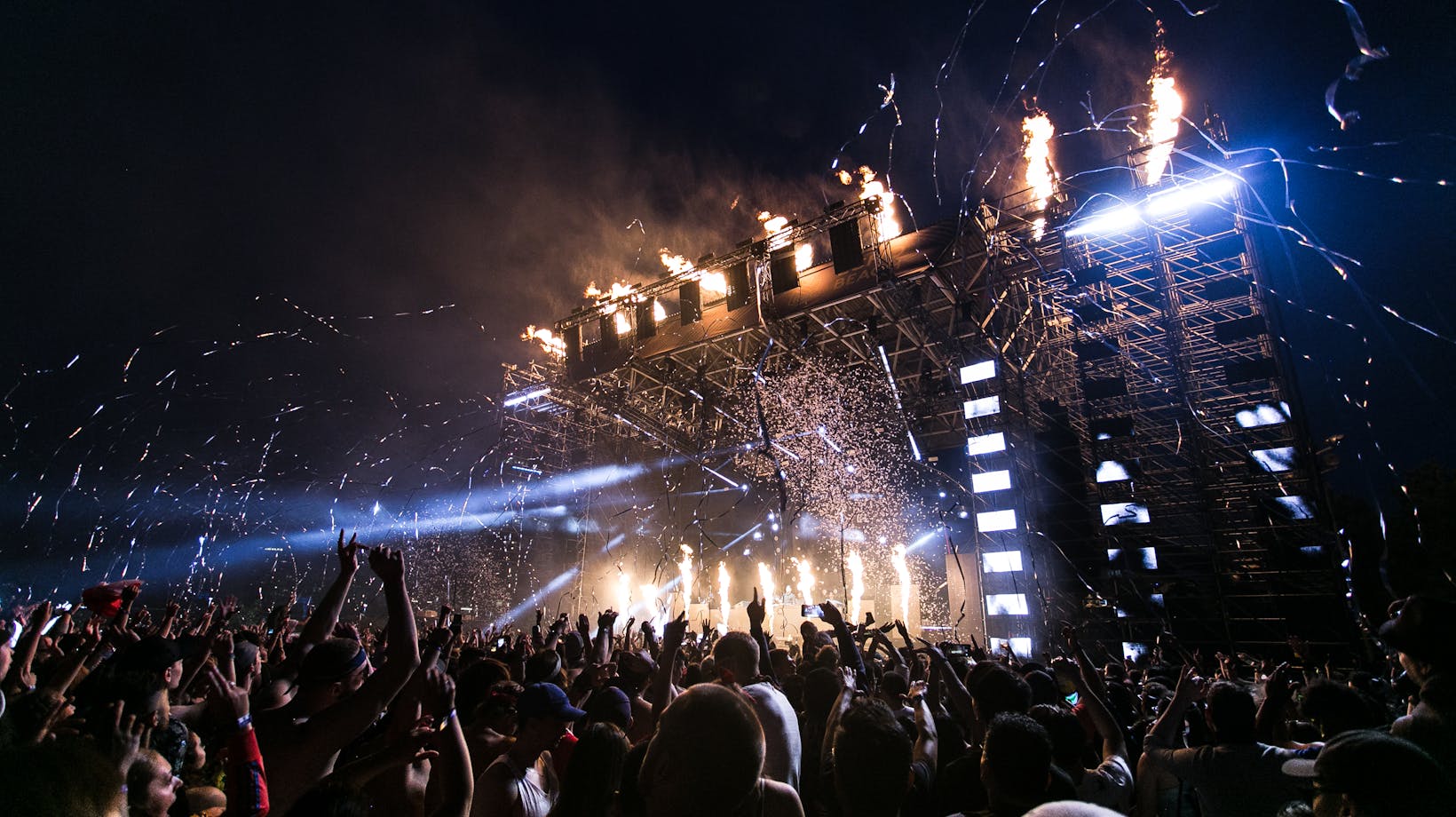Imagine stepping into a world where the lines between reality and fantasy blur. That’s what virtual reality (VR) offers. It’s not just a buzzword; it’s a game-changer in the realms of entertainment and education.
In entertainment, VR’s transforming how we experience movies, games, and even concerts. It’s like you’re right in the middle of the action, not just a spectator. And in education? It’s turning classrooms into interactive learning environments, making lessons more engaging and memorable.
So, let’s dive into the exciting world of virtual reality. We’ll explore how it’s revolutionizing entertainment and education, and why it’s more than just a passing trend. It’s the future, and it’s here now.
Virtual Reality in Entertainment
Digging deeper into the multifaceted roles of VR in entertainment, there’s a whole lot to discuss. It’s fair to say that VR is ploughing its way into how we perceive and engage with entertainment, making a significant impact on numerous fronts.
Immersive Gaming Experiences
In the gaming scene, VR is leading a revolution with Immersive Gaming Experiences that push the limits of what used to be possible. Traditional video games were constraining, only allowing direct controller inputs to navigate through pre-determined worlds. However, VR has flipped this scenario upside down.
With VR, I’m not just using a controller to steer my character; I’ve become the character. It’s thrilling to explore virtual environments that wrap around me, where I can interact with the world just as naturally as in real life.
Let’s consider the super-popular VR game, Beat Saber. The game places two light sabers in my hands and sends an array of musical blocks my way. The catch? I’ve to slash these blocks using the sabers to stay in-game, a feat that would be impossible to achieve with mere button presses on a traditional controller. This blends physical activity with gaming, further enhancing the level of immersion.
VR Movies and Concerts
Beyond gaming, VR has paved its way into movies and music concerts as well. Now, you can watch a movie or a concert from the comfort of your home while feeling like you’re actually there—a true-to-life experience.
VR movies interact with viewers in a more immersive way than traditional cinema. Instead of watching a story unfold from a fixed perspective—generally from the fourth wall—VR movies place viewers inside the action. The result? A 360-degree immersive experience that amplifies the emotional connection with the plot, taking cinematography to an entirely new level.

When it comes to concerts, using VR has a similar enticing effect. Visualize attending a live concert of your favorite band. But instead of jostling with the crowd, you’re at home, relaxed. VR headset on, and you’re transported to front row seats, even backstage, experiencing every beat, every note, as if you’re physically present there.
Whether it’s immersive gaming, engaging cinema, or live concerts, VR is profoundly redefining the boundaries of entertainment. Remember, it’s not just about technology for technology’s sake. The end goal always centers around enriched experiences that captivate and engross us. And it appears, VR is configured to deliver just that.
Virtual Reality in Education
Virtual Reality (VR) is not exclusively for entertainment. It’s making significant strides in the realm of education, offering unique learning experiences that traditional methods can’t match.
Interactive Learning Environments
VR provides Interactive Learning Environments, allowing students to immerse themselves entirely in the subject matter. When dealing with complex topics or abstract concepts, the interactive aspect of VR can be a game-changer. In medicine, for instance, VR technology lets students explore the human anatomy in a virtual environment, making it more accessible for them to understand physiological processes.
Instead of passively sitting in a lecture, VR allows students to actively engage, manipulate, and navigate through the details of their learning materials. This interactivity is a fantastic tool for educators since it offers an innovative method to capture students’ attention, improving their understanding and retention of the information- something that even the best, most legit writing service can’t offer. In turn, if students need professional assistance with completing their assignment, they can use a legit writing service for better learning experiences.
Virtual Field Trips
Let’s talk about Virtual Field Trips. Imagine being able to travel to ancient Egypt, dive to the depths of the ocean, or even venture into outer space, all from the safety of the classroom. Without the logos, travel costs, or other typical barriers to field trips, VR adventures are accessible to everyone.
Virtual field trips are not just exciting; they also provide unique opportunities for experiential learning. Students will remember the journey to the rainforest or the trip through the blood vessels, which can significantly enhance their knowledge retention. The possibilities are nearly unlimited, redefining the scope of what can be achieved within the walls of a classroom.
So, we see VR has a profound influence on education, much like its impact on the entertainment industry. Providing engaging, immersive experiences, VR is shaping the way we educate, promising a future where learning is not only informative but also exciting and fun.
Benefits and Challenges of VR in Entertainment and Education
In this age of technology, VR is shaping not only the world of entertainment, but also of education. It’s beneficial for its ability to captivate users with immersive experiences, but at the same time, there have been concerns about its effects on health. But what are the perks and the pitfalls? Let’s delve deeper.
Enhanced Engagement and Learning
Without a doubt, VR significantly enriches user engagement and facilitates learning across varied environments.
Look at it this way: instead of simply passively watching or reading about an event, imagine being able to participate in it. Studying history becomes a journey through time, as students can witness significant events unfold right before their virtual eyes.
Professional development can also get an upgrade. Using VR, employees can simulate their work environment, which empowers them to test out various scenarios and strategies without the fear of real-world implications.

However, it’s not just education that’s reaping the benefits. Entertainment has bloomed with the onset of VR. It’s like stepping into your favorite game or movie, fully immersing yourself in another reality. That’s the magic of virtual reality – it’s not confined by borders or limitations.
For instance, VR is making waves with live concerts, providing fans who can’t attend in-person the chance to watch a performance in a simulated environment. It feels real, right down to the crowd noise and stage lighting. That kind of engagement with entertainment is pushing the boundaries of what we deem possible.
Potential Health Concerns
While the benefits are making headlines, it’s only responsible to consider the potential health implications. Prolonged use of VR devices has reportedly caused discomfort to some users, with symptoms like dizziness, nausea, and even migraines.
Additionally, there is a relatively unexplored domain: the psychological implications. After all, there’s a huge difference between watching a movie and being plunged into one. It’s not surprising that immersive experiences can potentially trigger emotional responses that would not occur in a traditional media environment.
Yet, despite these potential pitfalls, progress is happening. Developers are striving to improve the comfort of VR devices. They’re researching ways to reduce negative physical and psychological impacts. It’s a realm in constant evolution, guided by both creative innovation and mindful caution.
Conclusion
It’s clear that VR technology is shaking things up in both entertainment and education. By offering immersive experiences and enhancing learning, it’s pushing the boundaries of what’s possible. Yet, it’s not without its challenges. Health concerns linked to long-term VR use are real, but developers are tirelessly working to improve devices and lessen negative impacts. The future of VR in education and entertainment is bright, with its evolving nature promising innovative solutions that will continue to transform our experiences. As we move forward, we can expect to see VR becoming an even more integral part of our lives. Whether we’re immersing ourselves in virtual concerts or exploring new educational horizons, VR is set to redefine how we learn, work and play.

